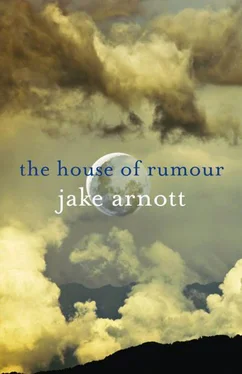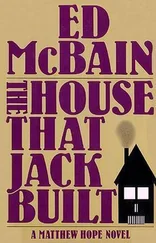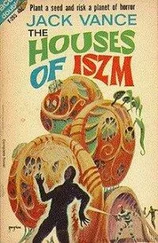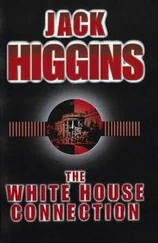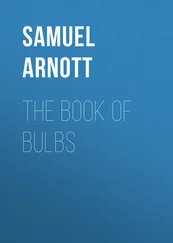She turned and gave me a knowing smile.
‘Everybody should play things out more, shouldn’t they, darling?’ she demanded in a tone that offered hope for us yet. ‘Otherwise they end up killing each other.’
As the week wore on Ann tended to confide her feelings to Clarissa just as Ian vented his to me. He liked to drink and smoke late into the night.
‘I tried to kill him off, you know,’ he told me as we drank bourbon together. ‘I’m even writing his bloody obituary this time but it won’t do any good. I even had him in a health farm in one book, just so I could go and relax. But he won’t lie down. He’ll kill me first.’
And I remembered the strange remark he had made that afternoon on Pall Mall. He was talking about his hero, his fictional creation. His other self.
‘I punish him with pain. He punishes me with pleasure,’ he went on. ‘You see, like him I drink too much, smoke too much. Rush around in a constant state of nerves. Wear myself out. Except here. Here I write him and count the cost of the damage he has done me. Maybe it’s just guilt.’
He poured another drink, lit another cigarette.
‘You’re like me, Trevelyan. A staff officer. Sticking pins into maps and sending men into danger. From a desk. A handler: yes, that’s what I thought I was doing, handling another agent. But he’s ended up running me. He’s the revenge for all the men I’ve sent into danger.’
I wanted to ask him about this but he changed the subject. He was keen to talk about current intelligence concerns and Service gossip. The conversation quickly turned to Cuba. It was Jamaica’s nearest neighbour, after all, and it had only been three months since the Missile Crisis had nearly blown us all to kingdom come.
We agreed that American policy towards Castro had been a disaster. All the CIA’s interventions and black ops had only forced Cuba closer to the Soviets.
‘They should have set about deflating Fidel, rather than building him up as a threat to world peace,’ Fleming suggested.
‘I’ve always found that the Americans lack a little finesse in negritude. They’re not very good at lying. Too bloody sincere.’
‘They should have found a way of ridiculing Castro. I said as much to Kennedy.’
He explained rather sheepishly that the president of the United States was something of a fan of his novels and that they had met when he was still a senator.
‘I told him that they should generate black propaganda, purportedly from the Russians, informing them that atomic testing in the region had caused beards to become radioactive and advising them to shave them off, thus undermining the whole revolution. One of their security advisors actually thanked me for my idea with a completely straight face. They don’t seem to realise that you need a sense of humour. And a sense of luck.’
‘Luck?’
‘Good fortune, yes. That’s what it mostly relies on, isn’t it? You have to find a way of using it. Take Cuba. You know what happened when Castro marched into Havana and gave his first televised speech in front of the cheering crowds? Two doves appeared. One perched itself on his shoulder. Now, in Santería, the Cuban version of voodoo or whatever, that meant he had the protection of the gods and was all-powerful. I mean, imagine being able to engineer something like that?’ He smiled. ‘Political power is largely a matter of superstition. Intelligence too. Magic, some of it.’
‘Like Operation Mistletoe?’
He let out a wheezing laugh and stood up, swaying a little.
‘Too late for that now. We’ll talk more tomorrow.’
The following night Fleming gave me his final word on the Hess affair.
‘You remember what Winston said? “In wartime, truth is so precious that she should always be attended by a bodyguard of lies.” That’s what worked so well for us. Perfidious Albion, yes, we’ve always been good at that. Our lies were better than theirs. Some of it was Maxwell Knight’s fantasy. M believed in some of that mumbo-jumbo so it appeared convincing.’
‘Stalin was sure that the Service had a part in the Hess flight.’
‘Yes, and we know now how well informed he was about British Intelligence. But I’m not so sure, you know. Crowley had some occult contacts in Germany that we used but nobody was sure if they actually had an effect. What did you find out?’
‘Not much.’
I told him that I’d managed to track down an astrologer and pyschic who had been some kind of voice teacher. Astrid Nagengast had been arrested during Aktion Hess and also had a record of being connected to a Munich section of the Red Orchestra. Along with some occultists she had been interrogated and detained in Sachsenhausen concentration camp for two months.
‘What happened to her?’
‘She survived the war and went to live in California.’
‘You could go out there and see her.’
‘Perhaps. But, you know, once you start investigating that part of the world it becomes more and more absurd. Crowley had something of a cult out there for a while, of course, but it’s easy to get carried away with conspiracies and all kinds of nonsense.’
Fleming poured us both another drink.
‘I circulated a paper for Naval Intelligence in 1940 titled Rumour as a Weapon ,’ he said. ‘I wrote that we had the ammunition; we just needed the device to direct it. In Political you called it the Black Game or negritude. Later I found my own name for it. For where it all belonged. The House of Rumour.’
‘The House of Rumour?’
‘At the centre of the world where everything can be seen is a tower of sounding bronze that hums and echoes, repeating all it hears, mixing truth with fiction. It’s from Ovid’s Metamorphoses . A lovely image, don’t you think?’
‘It is, rather.’
‘And that’s what every intelligence service is, at its heart. It’s been the same since classical times. It was from the House of Rumour that the Trojans learnt that the Greeks were coming. An advance warning system. And we knew that Germany was planning to invade Russia and that’s what would save us. But we had to make sure. So there were all manner of phony peace feelers to help convince the enemy that they might not have to fight a war on two fronts.’
‘Like Operation Mistletoe?’
‘Perhaps. Though we’ll never be sure if it really had any effect. I think it was mostly good fortune. And bad luck on their side. You have to remember that in the end the Trojan War was won by deception and counter-intelligence.’
‘Oh yes, the wooden horse. Particularly nasty piece of negritude.’
‘Another phony peace offering. Well,’ he sighed, ‘we still need the House of Rumour. To make sure our own Trojan War never takes place. I mean, we had a bloody close shave last October.’
And that was the last time I spoke to Fleming about the case. He died the following year of a massive heart attack. Looking back, I think it was from that night on that I began to stop chasing after the affair. The myths and conspiracies continued to circulate but I chose to conclude that it was more likely that the Deputy Führer was deranged and had acted on his own.
The most ludicrous theory that I came across about Hess was that a doppelgänger had flown in his place. An absurd hypothesis with scant evidence or explanation, yet one that presented a compelling image: the double, that great theme of fiction and intelligence. And of two worlds, too — a splitting of possible outcomes. Fleming told me that there were only two crucial moments in any life (and he used this conceit in the title of the novel he was working on): that of birth and death. But by then he was facing the end. Now, it’s nearly all over for me too. I’m left with the final mystery of the Hanged Man. Just why was a ‘suicide note’ planted on him?
Читать дальше
